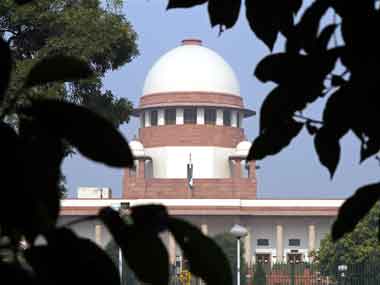The Supreme Court’s rejection of the petition of multinational drug company Novartis for a patent for its old-but-dressed-up blood cancer drug Glivec is a tremendous victory for the people of India and the developing world. The decision will ensure that drug companies will not be able to practice “ever-greening” of patents in India. In simple words, they will not be able to dress up old drugs as new by changing their forms or slightly altering formulations to get new patents. By this devious practice, companies seek to ensure that their blockbuster drugs don’t ever go out of patents. Poor countries, that depend on generic copies of lifesaving drugs, are the worst hit because ever-greening denies them the opportunity to make copies of the drugs even after the expiry of the original patent. With the SC decision, a lot more drugs will be available at affordable costs in India as generic manufacturers can make and sell them at a fraction of the original cost. For example, when Glivec was internationally priced at US$ 2600 nine years ago, its generic versions were available in India at US$ 200 - a difference of more than 300 per cent. [caption id=“attachment_680793” align=“alignleft” width=“380”]  The decision brings life saving drugs within the grasp of most Indians. Reuters[/caption] After the granting of compulsory license by the government of India in March last to an Indian company (Natco Pharma) to locally produce Nexavar, a liver-kidney cancer drug, this has been the most eagerly awaited decision in the health sector. Nexavar, which was priced at Rs 2.28 lakh per month is now available for Rs 6,600. For millions of Indians, and poor people across the world - including in rich countries such as the US - prohibitory prices of drugs are among the biggest stumbling blocks in accessing lifesaving treatment. In their quest to retain profitability, drug companies adopt various patenting techniques including filing multiple patents on a single molecule and trying tricks of ever-greening. A company can change the physical form of a drug, say from a crystal to something else, and claim that it is an innovation which has improved efficacy and thereby claim a new patent. Similarly, they can add some additional elements and dress up the same drug in a new formulation and claim a new patent. Their aim is to keep the generic manufacturers at bay and continue to make a lot of money. Their argument is that in a 20-year long patent-period, about 8-12 years go into development and hence they get only eight years to recoup the investment. The Pharmaceutical Sector Inquiry Report of the EU is shockingly illuminating on the unfair practices of the Big Pharma. “Filing numerous patent applications for the same medicine (forming so called “patent clusters” or “patent thickets”) is a common practice. Documents gathered in the course of the inquiry confirm that an important objective of this approach is to delay or block the market entry of generic medicines. In this respect the inquiry finds that individual medicines are protected by up to nearly 100 product-specific patent families, which can lead to up to 1,300 patents and/or pending patent applications across the Member States,” it noted The biggest victims of such practices are people from poor countries such as India, who by and large depend on generic drugs. The legal battle of Novartis started in 2007, when the Indian Patent Office rejected their patent application saying it was only a new version of an old drug under Section 3(d). The company went to Chennai High Court on two grounds - one, against the patent rejection and two, against Section 3(d) contenting that it was unconstitutional. The Madras High Court rejected both the pleas. Novartis subsequently went to the Intellectual Property Appellate Board with an appeal against the patent rejection, but was unsuccessful. In 2009, the company went to the Supreme Court against Section 3(d) of the Indian Patent Act, brought in by Parliament in 2005. While Section 3(d) requires increased therapeutic efficiency for granting a new patent for a revised molecule, Novartis argued that its new form ensured more bio-availability of the drug in the body. the Madras High Court had made it clear that efficacy meant only therapeutic efficacy in healing the disease. Under section 3 (d) of the Indian Patents Act, ever-greening is not permitted unless there is “significantly improved efficiency”. [caption id=“attachment_680801” align=“alignright” width=“380”]  The Supreme Court’s agreement with the patent regulator’s office is reassuring. Reuters[/caption] Had Novartis won the case, it would have weakened Section 3(d) and MNCs would have indulged in reckless “ever-greening”, keeping life-saving drugs out of the reach of most people. This decision will encourage generic manufacturers to make copies of otherwise costly drugs without the fear of silly litigation. In the Novartis case, India spoke in a single voice right from the patent office, which first rejected the company’s plea for a new patent. That both the patent offices and the courts spoke in the same voice is extremely reassuring. No more ambiguity or hairsplitting on Section 3(d). It’s here to stay. As the Indian parliament envisaged, it will a second filter and a great safeguard. Evidently, a resolute patent regime and employment of TRIPS flexibilities, such as compulsory licensing, are a great combination for Indian public health.
Had Novartis won the case, big pharma would have indulged in reckless “ever-greening” of drugs keeping life-saving drugs out of the reach of most people in India.
Advertisement
End of Article


)
)
)
)
)
)
)
)
)



